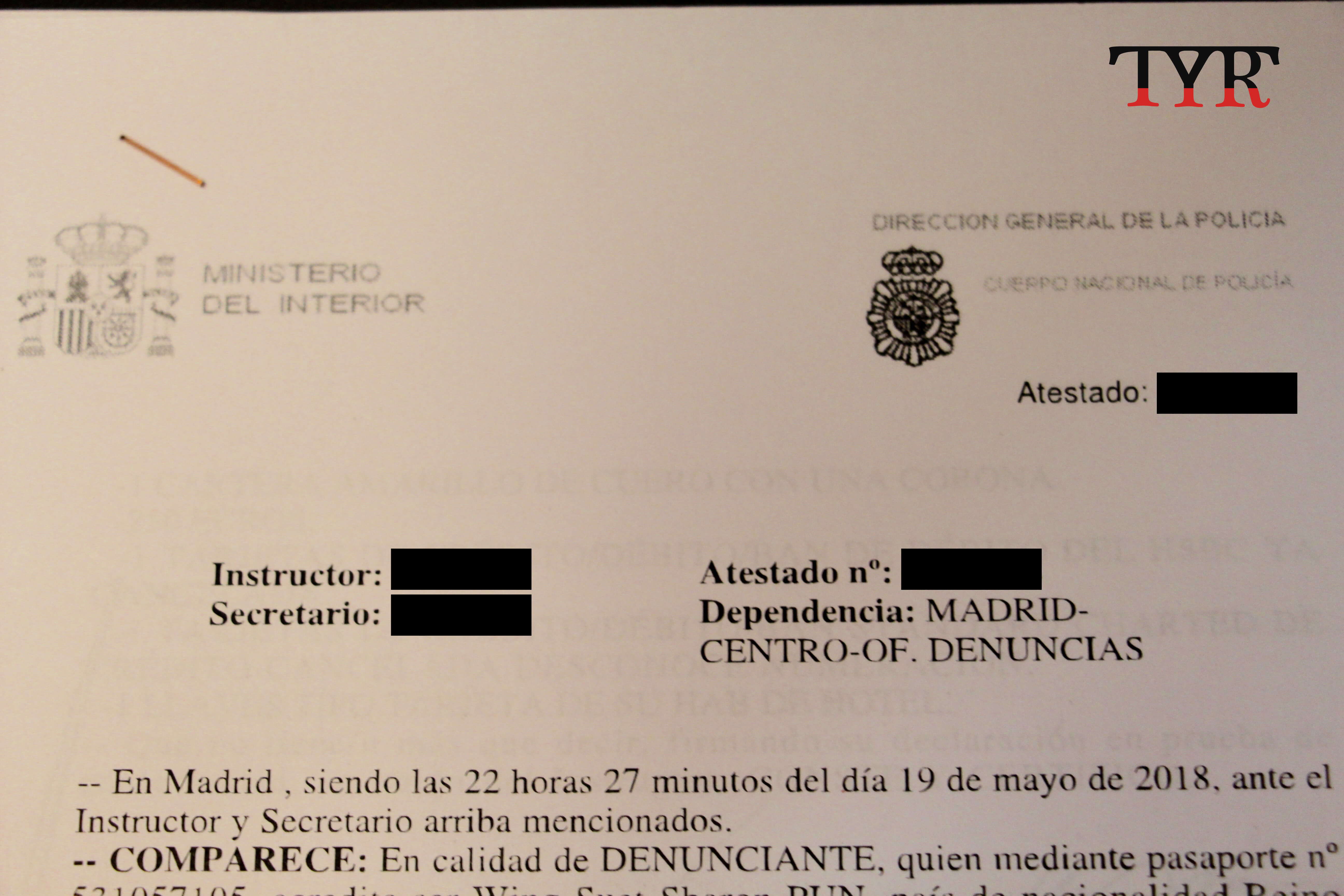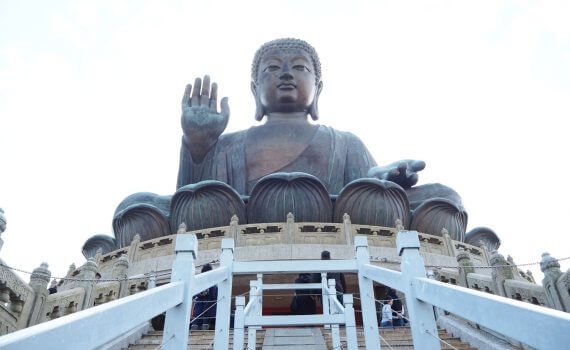It is a place where you can meet friends from around the world, who share a truly memorable experience on your journey – it is a place you definitely do NOT want to visit in Spain.
At the National Police, district Madrid-Centro, a red sign reads "SATE" near the entrance. "SATE" means "Foreign Tourist Assistance Service". Follow it and you enter a room full of people sitting in front of a blank wall. They are all victims of pickpocketing in Spain.
I found myself a seat. There were 20 people this particular afternoon in May. The tourist season in Madrid has only just started. Everybody in the room looked blank and empty, just like their wallets.
Five minutes later, an officer invited me to another room. He handed me a phone. There was a police officer on the line.
"Tell me what happened," he said.
"This afternoon I was going around Plaza Mayor with my friends. My wallet got stolen," I explained.
The wallet was in a zipped up bag by my side. I had no idea how it got stolen. Perhaps just one lapsed moment was enough for a skilful thief to open my bag, spot the wallet, and snap it way – just a matter of seconds.
It was day one of our trip. I had 250 Euros ($2,300) in my wallet, along with my bank card, credit card, and the key for my hotel room. Fortunately, there was no suspicious spending record on my credit card before I called to cut the service.
After my account of what happened, I was told to return to the room of victims to wait for the official statement report. I asked how long would it take. "Hmm... usually a while," the officer muttered.
Everyone in the room had a ticket with a queuing number. Mine was 039. I looked up at the screen that displayed the numbers. It showed "001", for two hours.
Keiko Hara-mura was right in front of me in the queue. She is a Japanese tourist travelling from Barcelona to Madrid when her wallet got stolen.
"Was it all the money you had?" "Well…" She smiled bitterly, "we exchanged some more cash when we just arrived."
Another victim from the Netherlands, Torbwn Van Zijp, had a different experience. He had not lost any cash, but his passport. Mr. Zijp was planning to go home with his family two days later.
Two more hours passed with the same group of people still inside the room. Another person came in to ask how long everyone had been waiting. He looked desperate. Markus Gmeiner was number 52.
Mr. Gmeiner is from Austria. This was his first day in Madrid. "I was going to grab some food at McDonalds, so I withdrew some cash from the ATM. And then it's gone!"
It was 9 p.m. when he came into the police station. He expected to stay there for the night. "My friend is out to get some alcohol," he said as if that would provide some form of relief.
To pass time, my two friends and I started writing the postcards we bought just before this unhappy incidence.
Five hours had passed. At 10.30 p.m., I finally got my police report.

Madrid, as the capital of Spain, is becoming more and more popular for tourism. According to data from the German marketing and business website, Statista, roughly 6.7 million international visitors came to Madrid in 2017, nearly triple of what it was ten years ago.
A survey by Numbeo, a database on the cost of living, in May 2018 Madrid ranked number 15 in a crime index in Southern Europe. The worst for crime is Catania in Italy. Barcelona came seventh. The index measures property crimes such as theft and vandalism. That is the second highest type of crimes in Madrid. The worst is corruption and bribery.

Zhou Xin-yao and Xue Chao, exchange students from Beijing, have been living in Madrid for eight months. They agreed that it is stressful to be constantly worried about theft on the streets of Madrid.
"The thieves come in teams," Ms. Zhou said, "some intentionally spill bird poop on your clothes, so their gang members could get what they want when you are busy dealing with cleaning and the apologies."
They explained that the gangs come up with all sorts of ways to distract unknowing victims. For example, children would hand menus to tourists to beg for food. When they get their menus back, they grab it along with your phone.
Another common approach is to snatch the victims’ belongings on a train. The thieves could swiftly jump off at any station so that there is no way of chasing after them.
It is not the type of experience one would want to write home about, but I just chalk it up to experience. When we left the police station, one of my two friends who had sat with me for those hours of waiting, revealed that she had hidden her cash in her shoes. Maybe I will do the same tomorrow.
Caught red handed. Lecturer, Clemence Poon confronts a man whom he saw trying to take a cell phone from a student’s pocket
《The Young Reporter》
The Young Reporter (TYR) started as a newspaper in 1969. Today, it is published across multiple media platforms and updated constantly to bring the latest news and analyses to its readers.

The journey of enlightenment

Death in the afternoon in Madrid




Comments